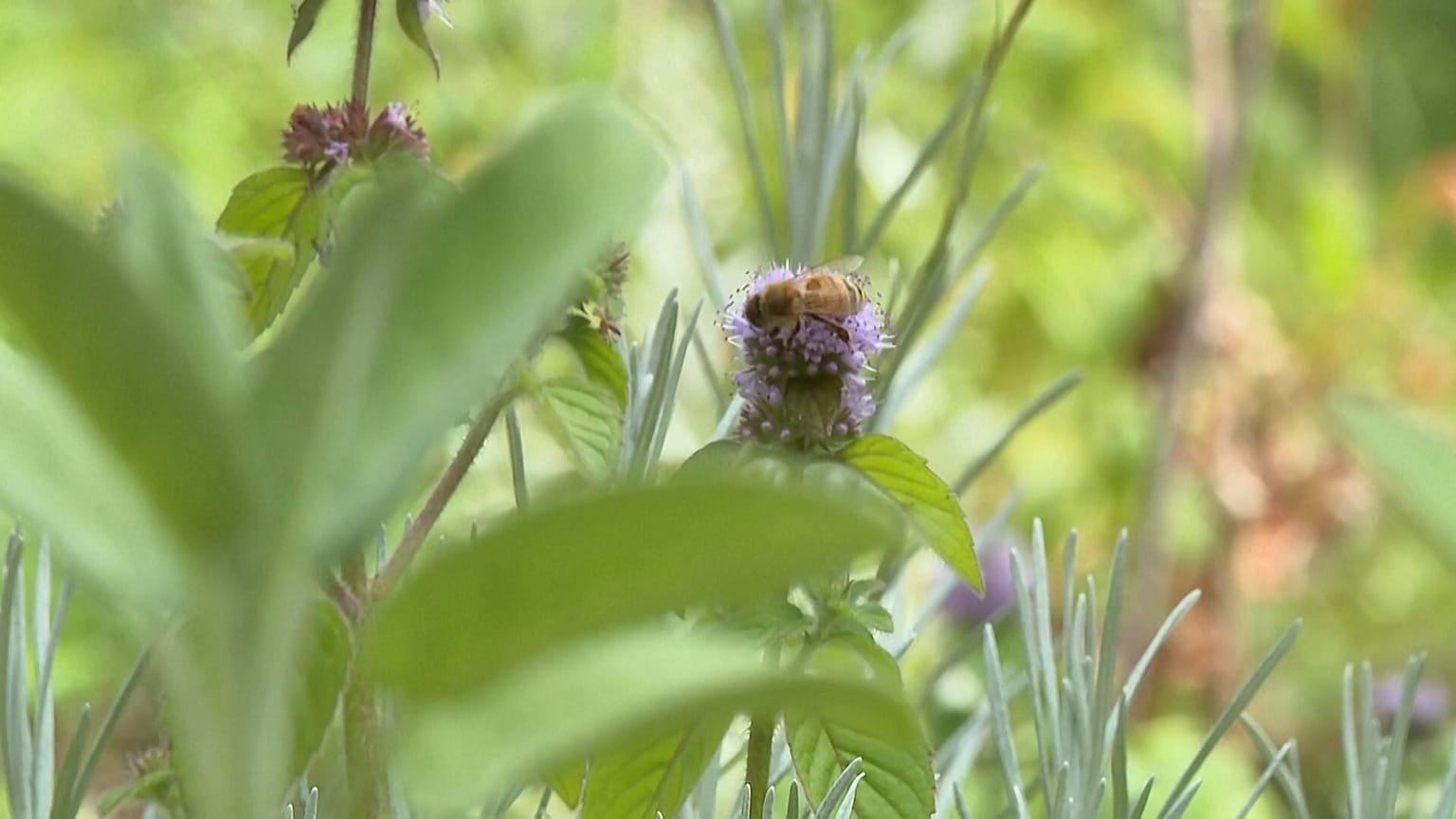Health
Discover Berlin’s Monk Garden: A Journey into Edible Heritage

The Monk Garden in Marienfelde, a suburb of southwest Berlin, is revitalizing interest in edible and medicinal plants through unique dining experiences and educational workshops. Founded by Martin Rötzel, the garden features nearly 200 varieties of rare herbs, leaves, and trees, many of which were once commonly cultivated by monks. In an era dominated by mass-produced food, Rötzel aims to reconnect people with forgotten traditions linked to these plants.
Rötzel organizes long table dinners prepared by a fine dining chef, alongside workshops and seminars where visitors can explore the culinary and healing properties of various plants. The garden’s offerings include intriguing varieties such as New Zealand spinach and Syrian black cumin, which are seldom found in regular supermarkets. Rötzel believes that a significant portion of plant knowledge has been lost, stating that “99 percent of people don’t know a single name of a plant.”
Bridging the Gap Between Knowledge and Experience
To combat this knowledge gap, Rötzel emphasizes the importance of experiential learning. “We are trying to provide access to this ancient knowledge through formats such as this one, Reficio (the dining experience),” he explained. He believes that tasting and preparing these plants is essential for fostering appreciation and understanding.
Rötzel’s passion for herbs began in his childhood, but it deepened significantly after he fell ill 13 years ago. During his recovery, he turned to herbal remedies, eventually leading him to collect and propagate rare plants. He now oversees a 2,000 square metre garden, alongside a medicinal garden near a church, both designed to reflect the historical cultivation practices of the Middle Ages.
Visitors to the Monk Garden are encouraged to expand their culinary horizons. Britta Rosenthal, one of the guests, noted that the experience encourages adventurous cooking. “I want to be a little more adventurous when it comes to preparing food, not always relying on pepper, salt, and paprika, but also using something green and fresh,” she shared.
Nature’s Healing Power
The garden also attracts individuals interested in the medicinal properties of plants. Angela Merscher-Harms, a nurse who visited, expressed her enthusiasm for learning about nature’s healing capabilities. “I find it very interesting and exciting to learn what can be healed and achieved with nature as opposed to medicine,” she said. Merscher-Harms hopes her husband, an avid cook, will gain inspiration from the garden’s offerings for their home meals.
With its focus on education, culinary experimentation, and the revival of traditional plant knowledge, the Monk Garden stands as a testament to the enduring relationship between humans and the natural world. Visitors leave not only with a deeper understanding of edible and medicinal plants but also with a renewed appreciation for the rich traditions that have shaped our culinary practices over centuries.
-

 Top Stories3 months ago
Top Stories3 months agoTributes Surge for 9-Year-Old Leon Briody After Cancer Battle
-

 Entertainment4 months ago
Entertainment4 months agoAimee Osbourne Joins Family for Emotional Tribute to Ozzy
-

 Politics4 months ago
Politics4 months agoDanny Healy-Rae Considers Complaint After Altercation with Garda
-

 Top Stories4 months ago
Top Stories4 months agoIreland Enjoys Summer Heat as Hurricane Erin Approaches Atlantic
-

 World5 months ago
World5 months agoHawaii Commemorates 80 Years Since Hiroshima Bombing with Ceremony
-

 Top Stories3 months ago
Top Stories3 months agoNewcastle West Woman Patricia Foley Found Safe After Urgent Search
-

 Top Stories5 months ago
Top Stories5 months agoFianna Fáil TDs Urgently Consider Maire Geoghegan-Quinn for Presidency
-

 World5 months ago
World5 months agoCouple Convicted of Murdering Two-Year-Old Grandson in Wales
-

 World5 months ago
World5 months agoGaza Aid Distribution Tragedy: 20 Killed Amid Ongoing Violence
-

 World5 months ago
World5 months agoAristocrat Constance Marten and Partner Convicted of Infant Murder
-

 Top Stories4 months ago
Top Stories4 months agoClimbing Errigal: A Must-Do Summer Adventure in Donegal
-

 Top Stories4 months ago
Top Stories4 months agoHike Donegal’s Errigal Mountain NOW for Unforgettable Summer Views









